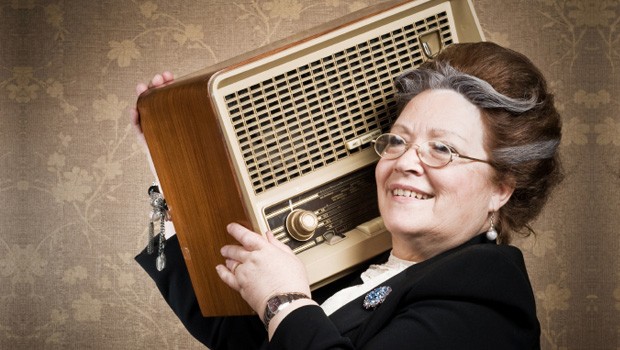How music makes you a better collaborator
Confession: I run into a productivity wall sometimes in the late afternoon. Known remedies include a brisk stroll outside, a quick word game (find me on Ruzzle if you dare) and/or a few dozen gallons of iced tea. More than anything, though, I turn to music. And with good reason. There has been plenty of fascinating research on the effect of music on our brains, documented in books like Daniel Levitin’s This Is Your Brain On Music: The Science of a Human Obsession.
We tend to think of music in a personal or social context, but music can also make a dramatic impact on your work productivity and even your ability to function as a team.
Music as solo productivity enhancer
Music can reset your focus and improve your mood. Music gives you a fix of that sweet, sweet dopamine. Music buries external distractions and annoying chatter ‘neath mountains of righteous riffs or slinky synths. Music can inspire you and push across the finish line of a daunting work project, just as surely as it pushes runners and weightlifters. This all seems obvious to music lovers, but you’d maybe be surprised by how many people “don’t really listen to music.” Woe unto them! There are benefits beyond exorcising your boring-conference-call-demons via four blistering minutes of “Raining Blood,” but that is a mighty benefit in and of itself.
Music as collaboration goggles
Essentially everything in your workday is interconnected; the way you work when you’re working solo will impact the way you collaborate. If you’re feeling stuck in a rut at your desk, it will likely bleed over into the conference room.Even a short blast of your favorite giddy pop song of the moment, on the other hand, can not only put some pep in your step, but can actually affect the way your brain processes emotions on your coworkers’ faces. Repeat: music literally changes the way you see your coworkers.
Music as teamwork facilitator
If you’re consuming music while you work, you’re probably doing it with headphones, but there may be circumstances or specific locations in which a shared listening experience will benefit your whole team. USA Today reported on surgeons making playlists for the operating room, relying on music both to calm their nerves at heightened moments and to celebrate jobs well done (one surgeon liked to sign off with Springsteen). Numerous studies have demonstrated a positive impact on productivity when music is played in factories. Some brands use music in the workplace to reinforce their own brand image. Lobbies, shared work areas and conference rooms can be ripe for the right soundtrack.
At the very least, sharing playlists – or building a shared playlist together – offers an easy opportunity to connect with coworkers outside of your usual circles.
Music as morale destroyer
Aye, there is a dark side. Late in my teenage years, I spent my summer in an office. My desk was near the office’s single source of aural delights, a tinny little radio that constantly vomited out a repetitive stream of the most insipid triple-A lite-radio you could imagine. It was more oppressive than any silence. The radio owner didn’t want to wear headphones for fear of being antisocial, apparently unaware that her broadcast was making her social pariah. She probably thought she was livening up the office. If you’re going to share the airwaves, make sure to keep an open and honest conversation about it.






